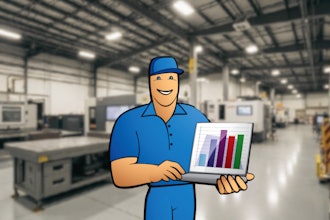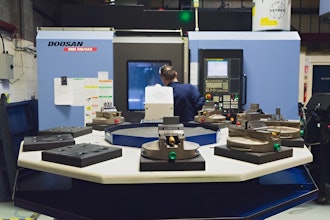
With new lockdowns likely around the corner due to ramifications surrounding the new COVID-19 Omicron variant, it has become evident that hybrid-work and work-from-home environments are here to stay. For the manufacturing industry specifically, this creates unique challenges but also opportunities.
Historically, manufacturing companies have been reluctant to adopt public cloud solutions due to security concerns, interrupting productivity with technology change, and lack of in-house expertise. But we’ve seen that the companies who embraced digital transformation have found the ability to thrive during these ‘work from anywhere’ conditions.
Specifically, Software-as-a-Service (SaaS) models for delivering cloud-based PCs and GPU-accelerated workstations have emerged as an optimal solution to keep manufacturing and product design organizations on their feet throughout this crisis. More importantly, they provide a foundation for hybrid work that positions organizations for agility and ongoing success, regardless of business climate.
The Future of Manufacturing is in the Cloud
Manufacturing organizations have traditionally provided employees and contractors with physical PCs and workstations to access the applications and data they need. While managing PCs is relatively well understood, the downsides are that IT must continually juggle provisioning, performance, access controls, security, and costly, complex hardware refresh cycles.
Cloud PCs and workstations open the door to innovation that can increase business agility, reduce operational complexity and position companies for faster growth.
Here are four key reasons why manufacturing firms should consider adopting SaaS Cloud PCs and workstations:
1. Better Security and Compliance
Deploying hundreds or thousands of physical PCs creates a security risk. Ensuring operating systems and software are patched becomes even more difficult when employees are outside the company firewall. Further, regulated or proprietary data can reside on endpoints with limited visibility or control over what the end-user does with it.
Cloud PCs and workstations substantially reduce security risk by centralizing desktops in the cloud so they can be easily patched and managed without reliance on the end-user connecting to a network or applying updates. With Cloud PCs, IT managers can prevent data from ever residing on the endpoint, giving better control over proprietary information and the power to quickly remove access should the need arise.
2. Superior Business Agility and Time to Value
Physical PCs can take IT teams weeks to source, provision, and distribute, resulting in delayed productivity and substantial business cost.
Cloud PCs and workstations provide flexibility, reliability, and a cost-effective way of scaling the business. Organizations also benefit from the flexibility to quickly hire and onboard the best talent, regardless of where new hires are based. Compute resources can be deployed to any user, anywhere in the world, in a matter of minutes or hours, not weeks or months.
3. Exceptional Performance for End Users
CAD/CAM/CAE designers and engineers command a premium and demand compute systems that support their productivity. GPU-accelerated cloud workstations, placed in a cloud region close to the user and leveraging cloud-speed networks for file or data access, can rival a liquid-cooled physical workstation - with the added benefit that the user is no longer chained to their desk. Instead, they are free to access their cloud workstation from anywhere, on any device, providing much greater flexibility.
4. Easy to Deploy and Operate
Organizations continue to struggle with onboarding new employees and providing them with the tools and infrastructure needed. With a SaaS platform for delivering Cloud PCs and workstations, IT can turn responsibility for delivering desktop SLA over to the Cloud PC vendor to focus on their business instead of troubleshooting infrastructure issues that can impact desktop availability or performance.
This technology also allows teams to scale up and down as business needs evolve. Need a GPU-accelerated machine to speed rendering for a couple of hours? Cloud workstations are a powerful and cost-effective solution. Want to securely onboard a subcontractor to support a new project? Have them up and running in minutes with Cloud PCs.
All in all, SaaS-based Cloud PCs and workstations can provide a solid foundation for agility and growth, especially in hybrid work environments. From ease of deployment, improved security, increased performance and superior agility, there are many benefits manufacturing can expect to gain when leveraging this technology.
For more information, visit https://www.workspot.com/.






















